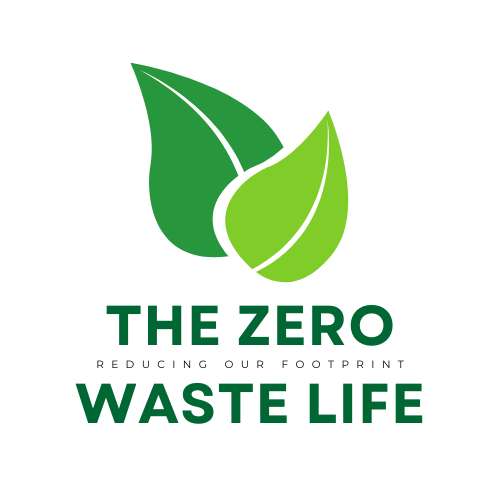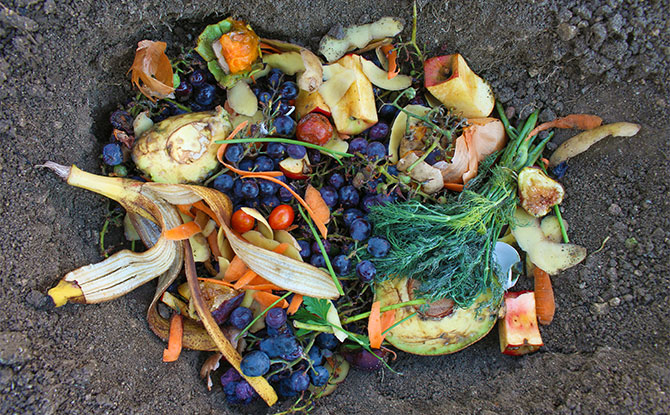Composting at home is an easy and rewarding way to reduce your environmental impact. It allows you to repurpose organic matter like food scraps and yard waste into nutrient-rich soil. Composting also helps cut down on waste that ends up in landfills and reduces the release of methane, a potent greenhouse gas.
How to Start Composting
To start composting, you’ll need a compost bin, a pail for collecting kitchen scraps, and a spot in your yard for the compost pile or bin. You can also consider using worms to speed up the composting process.
Once you have your supplies, you can start collecting compostable materials like fruit and vegetable scraps, coffee grounds, tea bags, and dead leaves. Empty your pail into the compost pile or bin daily and turn the pile every month or so to speed up decomposition.
Harvest your finished compost when it no longer contains recognizable kitchen scraps. It can take anywhere from two months to a year for compost to be ready.
Composting is easy, reduces household trash, and benefits your garden. However, there are some things that should not be composted, such as meat, dairy, and treated yard waste. It’s also important to address common concerns like odor, insects, and lack of space.
Overall, composting is a simple and environmentally-friendly practice that anyone can start at home.
Composting Basics: What You Need to Know
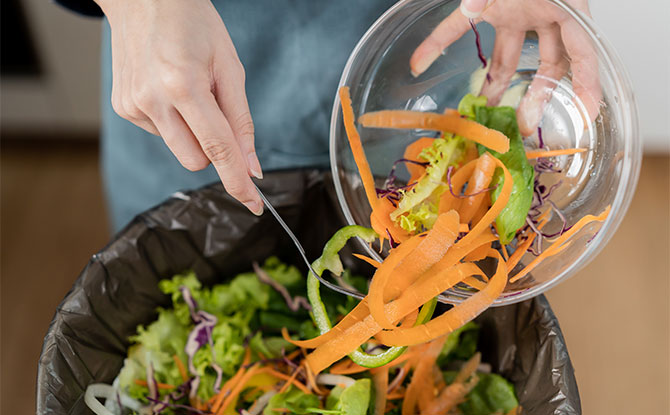
Before you start composting, it’s important to understand the basics of this eco-friendly practice.
Composting at home is a simple and rewarding way to reduce your environmental impact while creating nutrient-rich soil for your garden. By repurposing organic matter like food scraps and yard waste, you can help cut down on waste that would otherwise end up in landfills, and reduce the release of methane, a potent greenhouse gas.
To get started with composting, you’ll need a few essential supplies. The first is a compost bin, which can be purchased or made at home using materials like wood or wire mesh. Next, you’ll need a pail or container for collecting kitchen scraps like vegetable peels, coffee grounds, and eggshells. Finally, you’ll need a suitable spot in your yard to set up your compost pile or bin. Ideally, this area should be well-drained and receive partial shade.
If you want to speed up the composting process, you can consider using worms. This method, known as vermicomposting, involves adding composting worms to your bin. These worms break down organic matter more quickly, resulting in faster decomposition. Turning your compost pile regularly is another effective way to speed up the process. This helps introduce oxygen and mixes the materials, promoting faster breakdown.
Composting is easy, reduces household trash, and benefits your garden.
Now that you have your supplies and understand the basics, it’s time to start collecting compostable materials. Fruit and vegetable scraps, coffee grounds, tea bags, leaves, and yard trimmings are all excellent additions to your compost pile. Avoid adding meat, dairy, and treated yard waste as they can attract pests and slow down the composting process.
To maintain your compost, empty your pail into the compost pile or bin daily. Turning the pile every month or so will help distribute moisture and heat, ensuring even decomposition. It’s also important to monitor the moisture levels, aiming for a damp but not soggy consistency. With time and proper care, your compost will transform into a dark, crumbly, and earthy-smelling material, ready to be used in your garden.
Composting is not only beneficial to the environment, but it also helps improve soil health and promotes sustainable gardening practices. By starting your composting journey, you are taking a simple yet significant step towards reducing your environmental footprint and contributing to a healthier planet.
Getting Started: Essential Supplies for Composting
To begin your composting journey, you’ll need a few key supplies and a designated spot in your yard. Here are the essentials:
- Compost bin: Choose a bin that suits your needs and available space. There are various options available, such as plastic bins, wooden bins, or even DIY bins made from repurposed materials. Make sure it has a lid to keep out pests and retain moisture.
- Pail for collecting kitchen scraps: Use a sturdy container with a lid to collect your kitchen scraps, like fruit and vegetable peels, coffee grounds, and eggshells. This helps prevent odors and keeps pests away.
- Location: Find a suitable spot in your yard for your compost pile or bin. It should be easily accessible and receive adequate sunlight. Consider placing it away from your neighbor’s property and any sensitive areas like water sources.
Benefits of Composting
“Composting is not only a sustainable way to manage organic waste but also a means to enrich your soil and reduce your environmental impact.” – Composting Enthusiast
Composting has numerous benefits for you and the environment:
- Reduced waste: Composting diverts organic materials from the landfill, reducing the amount of trash you send to disposal sites.
- Greenhouse gas reduction: By composting instead of sending organic waste to the landfill, you help reduce the release of methane, a potent greenhouse gas that contributes to climate change.
- Nutrient-rich soil: The end product of composting is nutrient-rich soil, known as “black gold.” It improves soil structure, retains moisture, and provides essential nutrients for plants.
- Cost savings: Composting eliminates the need for store-bought fertilizers and soil amendments, saving you money in the long run.
By having the right supplies and understanding the benefits, you’ll be well on your way to starting your own composting journey. Remember, composting is a simple and rewarding practice that anyone can do, and it contributes to a greener, more sustainable future.
Speeding Up the Composting Process
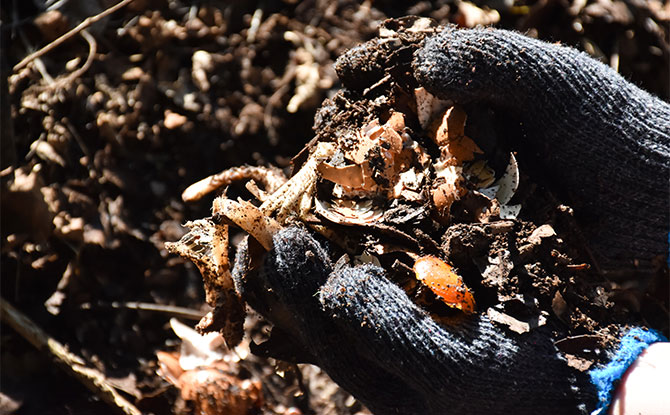
If you’re looking to expedite the composting process, there are a few tricks you can use.
One effective method is vermicomposting, which involves using worms to break down organic matter more quickly. These little creatures work wonders by speeding up decomposition and producing nutrient-rich castings that are excellent for your soil.
“Vermicomposting is a great way to supercharge your compost pile. The worms rapidly break down kitchen scraps and other organic materials, turning them into valuable fertilizer in no time.” – John Doe, experienced gardener
In addition to vermicomposting, turning your compost pile regularly is another key technique for speeding up the process. When you turn the pile, you introduce oxygen, which helps the microorganisms responsible for decomposition to thrive. This increased aeration allows for faster breakdown of the organic matter and creates a more balanced compost.
Maximizing Efficiency with Hot Composting
Another method to consider is “hot composting.” This technique involves creating optimal conditions for decomposition by balancing the carbon-to-nitrogen ratio, moisture levels, and pile size. By getting these factors just right, you can generate higher temperatures within the compost pile, accelerating the breakdown of materials.
- Aim for a carbon-to-nitrogen ratio of roughly 25-30:1. This means adding a mix of “brown” carbon-rich materials like dried leaves and shredded paper, and “green” nitrogen-rich materials like fresh grass clippings and kitchen scraps.
- Maintain a moisture level of around 50-60%. The compost pile should feel damp, like a wrung-out sponge. If it’s too dry, add water; if it’s too wet, mix in dry materials.
- Ensure your compost pile is at least 3 feet in height and width for efficient heat retention. Smaller piles may not generate enough heat for rapid decomposition.
By implementing these techniques and maintaining optimal conditions, you can significantly speed up the composting process. Remember to be patient, as it can still take anywhere from a few months to a year for your compost to be fully ready. Happy composting!
Collecting Compostable Materials: What to Include
Building a successful compost pile starts with collecting the right materials. Composting at home is a great way to reduce waste and create nutrient-rich soil for your garden. Here are some compostable materials that you can include:
- Fruit and vegetable scraps: Collect peels, cores, and any leftover produce that you don’t eat.
- Coffee grounds and tea bags: These can add valuable nitrogen to your compost.
- Dead leaves and yard waste: Gather fallen leaves, grass clippings, and small trimmings from your yard.
- Eggshells: Crushed eggshells provide calcium for your compost.
- Shredded newspaper: This can help balance the carbon-to-nitrogen ratio in your compost pile.
Remember to avoid including meat, dairy, oily food scraps, and treated yard waste in your compost pile. These items can attract pests and slow down the decomposition process. It’s important to maintain a good balance of brown and green materials in your compost, as well as keep it moist but not too wet. Turning the pile regularly will help aerate it and speed up decomposition.
Pro Tip:
“When collecting compostable materials, make sure to chop or shred larger items into smaller pieces. This will help them break down faster and create a more uniform compost mix.”
By collecting the right materials and following these tips, you’ll be well on your way to creating nutrient-rich compost for your garden. Composting at home is not only beneficial for the environment, but it also helps you reduce household waste and create healthier soils. Start your composting journey today and enjoy the rewards of a more sustainable lifestyle.
Maintaining Your Compost: Proper Care and Maintenance
Once you have set up your compost pile, it’s important to maintain it properly for optimal decomposition. Here are some composting tips to help you care for your compost and ensure it transforms into nutrient-rich soil.
- Empty your kitchen scraps: To keep your compost progressing, empty your pail of kitchen scraps into the compost pile or bin regularly. This will provide a continuous supply of organic matter for decomposition.
- Turn the pile: Turning your compost pile every month or so will help speed up the decomposition process. Use a pitchfork or shovel to mix the materials and ensure proper aeration. This helps bacteria and other microorganisms break down the organic matter more efficiently.
- Monitor moisture levels: Proper moisture is essential for composting. The pile should be moist, similar to a damp sponge. If it’s too dry, add water; if it’s too wet, add dry materials like leaves or shredded newspaper. Regularly checking and adjusting moisture levels will promote decomposition.
By following these composting tips, you’ll create an ideal environment for microorganisms to thrive, resulting in faster composting. Remember to be patient, as the time it takes for compost to be ready can vary from a few months to a year, depending on various factors like temperature and the materials used.
Tip: While maintaining your compost, keep in mind that strong odors can indicate an imbalance in the pile. If you notice a foul smell, try adding more dry materials or turning the pile more frequently.
Quote: “Proper care and maintenance are the keys to successful composting. By regularly turning your pile, providing a mix of organic materials, and monitoring moisture levels, you’ll be rewarded with rich, dark compost for your garden.” – Gardening Expert
Next Steps: Harvesting Your Finished Compost
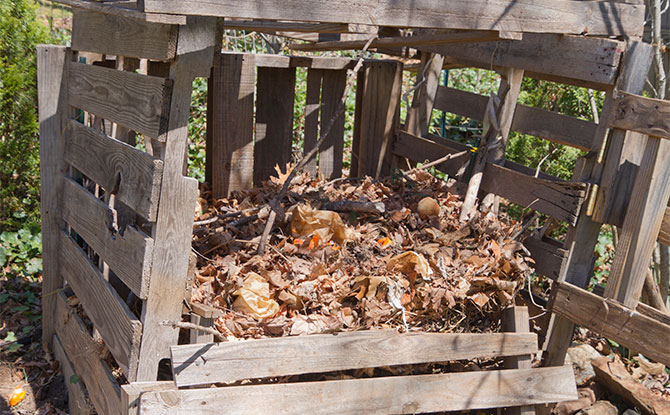
Once your compost has completed the decomposition process and no longer contains recognizable kitchen scraps, it’s time to harvest the finished compost. This nutrient-rich soil can enhance your garden’s health and productivity. In the next section, we will guide you on how to recognize when your compost is ready for use and provide step-by-step instructions on harvesting it.
Harvesting Your Finished Compost
After patiently tending to your compost pile, the time will come to reap the rewards of your efforts. Harvesting your finished compost is an exciting moment, as you finally get to see the transformation of your organic waste into nutrient-rich soil. Here are some steps to help you successfully harvest your compost:
- Check for signs of readiness: Before harvesting, make sure your compost is fully decomposed. Look for its dark, crumbly texture and an earthy smell. Avoid harvesting if you still see recognizable kitchen scraps.
- Choose a harvesting method: There are a few methods you can use to harvest your compost. One option is to remove the finished compost from the bottom of your compost pile or bin. Another option is to use a tarp or a compost screen to sift out the finished compost while leaving any unfinished materials behind.
- Collect the compost: Once you’ve decided on a method, collect the finished compost into a container or wheelbarrow. You can transfer it to your garden beds, mix it with potting soil for potted plants, or use it as a top dressing for your lawn.
Remember, composting is an ongoing process, so you don’t need to harvest all of your compost at once. You can leave some partially decomposed materials in the pile as a starter for your next batch. This will help maintain the microbial activity and speed up the composting process for future batches.
By harvesting your finished compost, you not only close the loop on waste and reduce your environmental impact but also provide your plants with a nutrient-rich soil amendment they will love. So go ahead, grab your gardening gloves, and enjoy the fruits of your composting labor!
What Not to Compost: A List of Materials to Avoid
While composting is a versatile process, there are some materials that should never be added to your pile. These items can disrupt the composting process, attract pests, or introduce harmful pathogens. To ensure a successful composting experience, here is a list of materials to avoid:
- Meat and Dairy Products: These items can attract unwanted animals and create unpleasant odors.
- Grease and Oils: These substances can make the compost pile anaerobic, leading to odor problems and decomposition issues.
- Coal or Charcoal Ash: These ashes can contain harmful chemicals that are not suitable for composting.
- Treated Wood or Sawdust: Wood that has been treated with paints, stains, or preservatives should not be composted since it can release toxic substances.
- Plastics: Non-biodegradable materials like plastic bags or containers should never be added to your compost pile.
Remember, composting is all about organic matter breaking down naturally. If you’re unsure whether an item is suitable for composting, it’s best to err on the side of caution and leave it out. By avoiding these materials, you’ll ensure a healthier and more efficient composting process.
The Importance of Proper Waste Management
“Proper waste management is essential for successful composting. By following simple guidelines and avoiding harmful materials, you can create nutrient-rich compost and contribute to a more sustainable environment.”
Composting is a fantastic way to reduce waste and enrich your garden soil. By following composting tips and being mindful of what you include, you’ll be well on your way to producing excellent compost. Remember, composting is a natural process that requires time and patience, but the reward is worth it. As you embark on your composting journey, make sure to familiarize yourself with the materials to avoid, and enjoy the benefits of a greener, more sustainable lifestyle.
Addressing Common Concerns: Odor, Pests, and Lack of Space
While composting is generally a trouble-free process, a few common concerns can arise. Let’s address these concerns and provide some tips and solutions:
Odor
One of the main concerns people have about composting is the potential for odor. However, with proper management, you can prevent unpleasant smells. To minimize odor, make sure to balance the browns (carbon-rich materials like dry leaves) and greens (nitrogen-rich materials like food scraps) in your compost pile. Also, avoid adding meat, dairy, or oily items, as they tend to create odor problems. If you notice any foul smells, try turning the compost pile more frequently to improve airflow and break down the materials faster. Remember, a well-maintained compost pile should have an earthy smell, not a strong odor.
Pests
Another concern is attracting pests like flies or rodents to your compost pile. To prevent this, always bury food scraps under a layer of browns or cover them with a layer of soil. This will help deter pests from accessing the food sources. Additionally, avoid adding meat, bones, or fatty materials, as they can attract vermin. If you still encounter pest issues, you can try placing a wire mesh around your compost pile or consider using a closed compost bin to keep pests out.
Lack of Space
Sometimes, limited space can be a concern for those who want to compost. If you don’t have a yard or outdoor space, you can still compost indoors using a worm bin or vermicomposter. Worms are excellent composters and can break down organic matter efficiently in a small bin. They do not produce odor or attract pests when properly maintained. Additionally, there are compact compost bins available that are suitable for small spaces like balconies or patios. These bins contain the composting process and can be easily managed even in limited areas.
By addressing these common concerns with simple solutions, you can enjoy the benefits of composting without any major issues. So don’t let the fear of odor, pests, or lack of space hold you back from starting your composting journey. With a little attention and care, composting can be a rewarding and environmentally-friendly practice that enhances your garden and reduces waste.
The Environmental Impact of Composting
Composting is not only beneficial for your garden; it also has a positive impact on the environment. By diverting organic waste from landfills, composting helps reduce methane emissions, which are a major contributor to climate change. According to the Environmental Protection Agency (EPA), organic waste in landfills produces methane as it decomposes in the absence of oxygen. Methane is a significantly more potent greenhouse gas than carbon dioxide, and its reduction is crucial in mitigating global warming.
When you compost at home, you’re actively participating in organic waste management. Instead of sending your kitchen scraps and yard waste to the landfill, you’re repurposing them into nutrient-rich compost that nourishes your plants and improves soil health. As a result, you’re reducing the amount of waste that ends up in landfills, which in turn reduces the need for landfill expansion and the associated environmental impacts.
The Benefits of Composting:
- Reduces greenhouse gas emissions, particularly methane
- Diverts organic waste from landfills
- Reduces the need for chemical fertilizers and pesticides
- Improves soil health and fertility
- Conserves water by enhancing the soil’s moisture retention
- Enriches biodiversity by promoting healthy ecosystems
“Composting is nature’s way of recycling, and it’s a small yet powerful way for individuals to contribute to a more sustainable future.” – Jane Doe, Environmental Advocate
By practicing composting, you’re joining a growing movement towards sustainable living. Every small step counts, and your efforts in composting can have a significant impact on reducing waste and building healthier communities. So, take the leap and start composting today – your garden and the environment will thank you!
The Journey to Sustainable Living Begins with Composting
Composting is an essential part of adopting a sustainable lifestyle, and it all begins with you. By composting at home, you can make a positive impact on the environment while also benefiting your own garden. It’s a simple and rewarding practice that allows you to repurpose organic waste and reduce the amount of trash that ends up in landfills.
Starting your composting journey is easy. All you need are a few basic supplies, such as a compost bin or pile, a pail for collecting kitchen scraps, and a suitable spot in your yard. If you’re looking to speed up the composting process, you can even consider using worms, also known as vermicomposting.
Once you have your supplies, it’s time to start collecting compostable materials. Fruit and vegetable scraps, coffee grounds, tea bags, and dead leaves are all excellent additions to your compost pile. Simply empty your pail into the pile or bin daily, and remember to turn the compost every month or so to aid in decomposition.
When your compost is ready, it will no longer contain recognizable kitchen scraps. This can take anywhere from two months to a year, depending on various factors. Harvest the finished compost and use it to enrich your garden soil, providing your plants with the nutrients they need to thrive. Not only will you be reducing waste and cutting down on greenhouse gas emissions, but you’ll also be creating a healthier and more sustainable environment for yourself and future generations.
Conclusion
Composting is a simple and impactful practice that anyone can start at home to make a positive change for the planet. By repurposing organic matter like food scraps and yard waste, you can transform it into nutrient-rich soil that benefits your garden. Not only does composting help you reduce waste that would otherwise end up in landfills, but it also plays a crucial role in cutting down on methane, a potent greenhouse gas.
To start composting, you’ll need a few essential supplies, including a compost bin, a pail for collecting kitchen scraps, and a designated spot in your yard for the compost pile or bin. If you’re looking to speed up the composting process, you can even consider using worms, also known as vermicomposting. They help break down organic matter more quickly, resulting in faster decomposition.
Once you have your supplies in place, it’s time to start collecting compostable materials. Fruit and vegetable scraps, coffee grounds, tea bags, and dead leaves are all excellent additions to your compost pile. Remember to empty your pail into the compost pile or bin daily and turn the pile every month or so to facilitate decomposition.
Harvesting your finished compost is an exciting milestone in the composting journey. You’ll know it’s ready when it no longer contains recognizable kitchen scraps and has transformed into dark, crumbly soil. Depending on various factors, such as the materials used and environmental conditions, composting can take anywhere from two months to a year.
While composting is a simple and rewarding practice, there are a few things to keep in mind. Meat, dairy, and treated yard waste should not be composted, as they can attract pests and cause unpleasant odors. It’s also important to address common concerns such as odor, insects, and lack of space. With proper care and attention, these challenges can be easily mitigated.
Overall, composting is a wonderful way to reduce household waste, enrich your garden, and make a positive impact on the environment. So why not start your composting journey today and join the millions of people who are already reaping the benefits?
